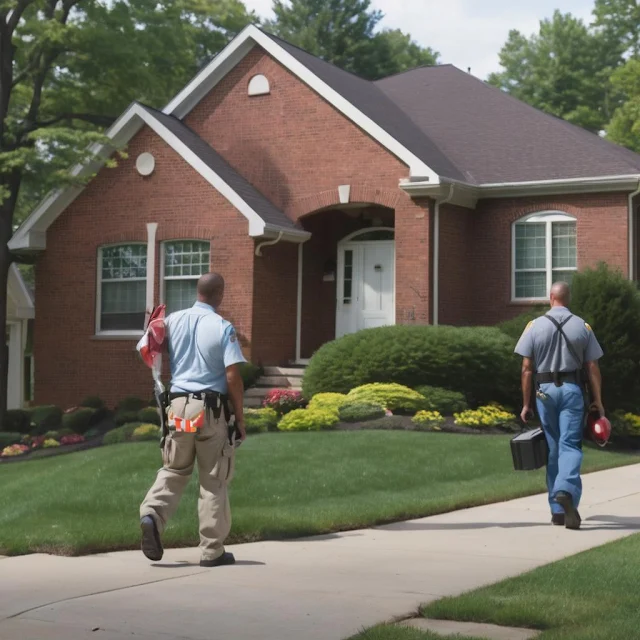In today's unpredictable world, being prepared for emergencies and ensuring the security of your home is essential. From natural disasters to home invasions, having a plan in place can make all the difference in keeping you and your loved ones safe. In this comprehensive guide, we will cover everything you need to know about emergency preparedness and home security.
Importance of Emergency Preparedness
Emergencies can strike at any time, so it is crucial to prioritize the safety of your family. By having an emergency preparedness plan in place, you can ensure that everyone knows what to do in case of an emergency, whether it's a fire, earthquake, or severe weather event. This level of preparedness can save lives and prevent injuries.
- Family Safety: Prioritizing the safety of your family members in times of crisis is essential for a successful emergency response.
- Emergency Response: Having a well-thought-out plan can help streamline the response to emergencies and ensure a quick and efficient evacuation if needed.
- Risk Management: Understanding the potential risks in your area can help you tailor your preparedness plan to address specific threats effectively.
1. Protecting Your Family
The safety of your family should be your top priority. By having an emergency preparedness plan in place, you can ensure that everyone knows what to do in case of an emergency, whether it's a fire, earthquake, or severe weather event.
2. Minimizing Damage
Being prepared can help minimize the damage caused by emergencies. By having supplies on hand and knowing evacuation routes, you can act quickly and effectively to protect your home and belongings.
3. Peace of Mind
Knowing that you have a plan in place can provide peace of mind in times of crisis. Instead of panicking, you can focus on following the steps outlined in your emergency preparedness plan.
Steps to Create an Emergency Preparedness Plan
Being proactive in creating an emergency preparedness plan is key to effectively responding to crises.
- Assess Risks: Start by identifying potential risks in your area, such as hurricanes, wildfires, or burglaries. Understanding the threats you face will help you tailor your preparedness plan accordingly.
- Create a Communication Plan: Ensure that everyone in your household knows how to communicate in case of an emergency. Exchange contact information and establish a meeting point in case you get separated.
- Build an Emergency Kit: Put together a well-stocked emergency kit that includes essentials like water, non-perishable food, first aid supplies, flashlight, and batteries. Make sure to periodically check and update your supplies.
1. Assess Risks
Start by identifying potential risks in your area, such as hurricanes, wildfires, or burglaries. Understanding the threats you face will help you tailor your preparedness plan accordingly.
2. Create a Communication Plan
Ensure that everyone in your household knows how to communicate in case of an emergency. Exchange contact information and establish a meeting point in case you get separated.
3. Build an Emergency Kit
Put together a well-stocked emergency kit that includes essentials like water, non-perishable food, first aid supplies, flashlight, and batteries. Make sure to periodically check and update your supplies.
4. Practice Evacuation Drills
Regularly practice evacuation drills with your family to ensure everyone knows what to do and where to go in case of a sudden emergency.
Home Security Tips
Securing your home is essential for protecting your loved ones and belongings from potential threats.
- Install Security Systems: Investing in a reliable home security system that includes features like alarms, cameras, and motion sensors can help deter burglars and alert you to any suspicious activity.
- Secure Entry Points: Ensure that all doors and windows are secure with sturdy locks and reinforced frames. Consider installing security bars or grilles for added protection.
- Outdoor Lighting: Keep your home well-lit with outdoor lighting to deter intruders. Motion-activated lights can be particularly effective in detecting suspicious activity.
1. Install Security Systems
Invest in a reliable home security system that includes features like alarms, cameras, and motion sensors. These systems can help deter burglars and alert you to any suspicious activity.
2. Secure Entry Points
Make sure all doors and windows are secure with sturdy locks and reinforced frames. Consider installing security bars or grilles for added protection.
3. Outdoor Lighting
Keep your home well-lit with outdoor lighting to deter intruders. Motion-activated lights can be particularly effective in detecting suspicious activity.
4. Neighborhood Watch
Join or start a neighborhood watch program to keep an eye out for any unusual activity in your area. By working together with your neighbors, you can create a safer community.
Conclusion
Emergency preparedness and home security are crucial aspects of keeping your loved ones and belongings safe. By following the tips outlined in this guide and creating a comprehensive plan, you can be better prepared to handle any emergency that comes your way. Stay vigilant, stay prepared, and stay safe.
FAQ
1. Why is emergency preparedness important for families?
Emergency preparedness is crucial for families because it prioritizes the safety of family members in times of crisis, helps streamline emergency responses, and aids in understanding and managing potential risks effectively.
2. How can having an emergency preparedness plan minimize damage during emergencies?
Having an emergency preparedness plan in place allows individuals to act quickly and effectively during emergencies, minimizing damage by having necessary supplies on hand and knowing evacuation routes.
3. What are the key steps to create an emergency preparedness plan?
The key steps to create an emergency preparedness plan include assessing risks in your area, creating a communication plan for your household, building an emergency kit with essential supplies, and practicing evacuation drills with your family.
4. What are some home security tips to protect your loved ones and belongings?
Some home security tips to protect your loved ones and belongings include installing security systems with alarms and cameras, securing entry points with sturdy locks, ensuring outdoor lighting is well-lit, and participating in a neighborhood watch program.

Comments
Post a Comment